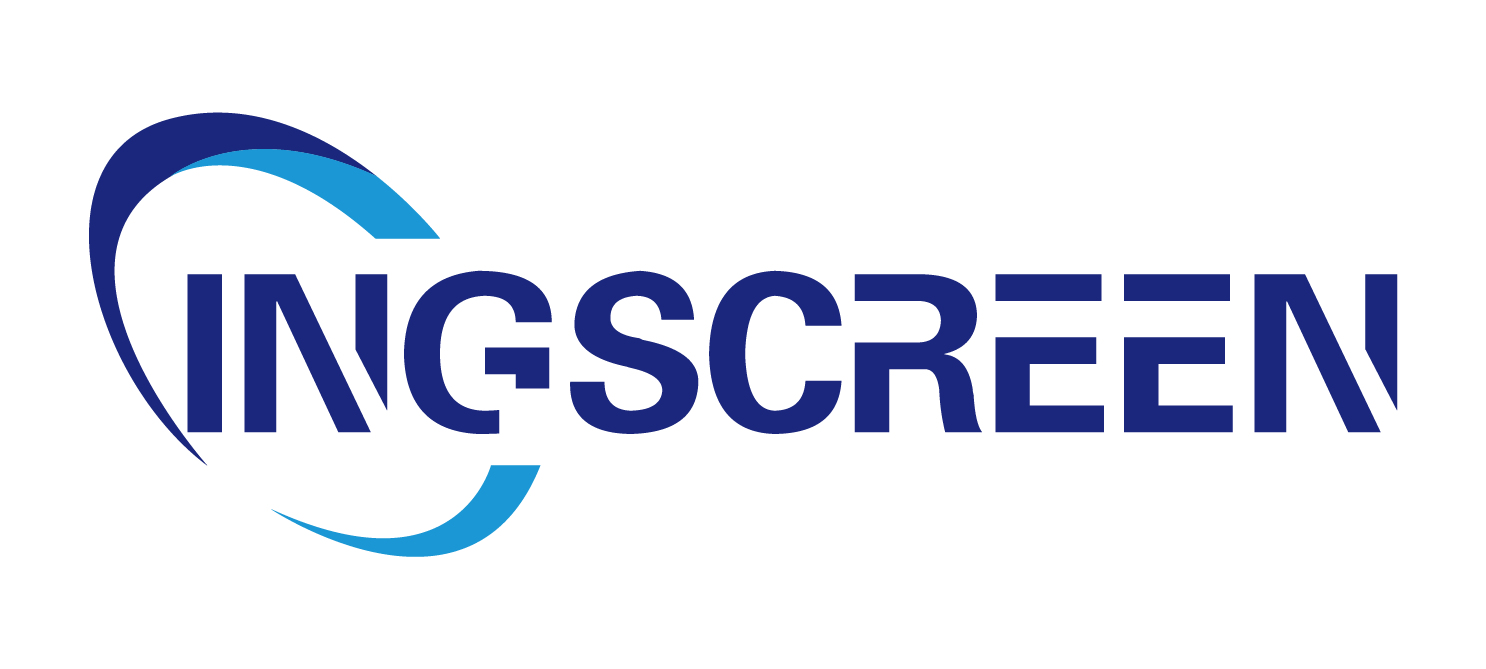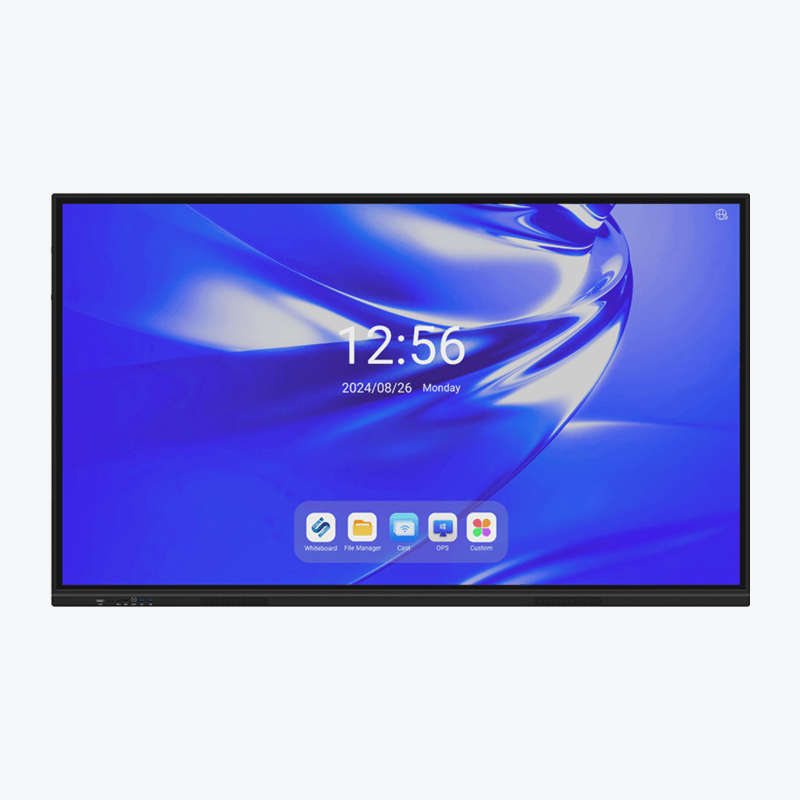The Rise of Kiosk Suppliers in the Digital Age
From Static Signage to Dynamic Interactive Systems
The evolution from static signage to dynamic interactive systems marks a significant leap in consumer engagement and information delivery. Traditional signage, which provides fixed content, has been gradually replaced by interactive kiosks that offer dynamic, engaging experiences. These systems enhance user interaction by allowing real-time information access and tailored content delivery, adapting to individual preferences. For instance, kiosks at airports can provide personalized travel information, improving passenger experience dramatically. The transition to interactive systems is supported by statistics showing increased consumer interaction; a staggering 72% of consumers prefer interactive displays over traditional formats in retail settings, highlighting the efficacy of interactive kiosks in attracting consumer interest and enhancing overall engagement.
Market Growth Projections and Industry Impact
The market for kiosk suppliers has experienced remarkable growth, especially accelerated by the demand for self-service and contactless solutions during the COVID-19 pandemic. The pandemic highlighted the need for kiosks that minimize physical contact, leading to widespread adoption in sectors like retail and healthcare. According to market analysis reports, the interactive display market, which includes kiosks, is set to grow exponentially, with its value projected to exceed USD 90.66 billion by 2032, with a CAGR of 8.08%. Experts predict that as more businesses recognize the need for efficient digital solutions, the market will continue its upward trend. This growth is supported by authoritative research, emphasizing that kiosks are pivotal in driving the future of contactless transactions, reshaping industries' operational models.
Sector-Specific Solutions: Tailored Applications of Interactive Kiosks
Airport Kiosks Streamlining Travel Experiences
Airport kiosks play a critical role in enhancing passenger experiences by reducing queues and offering convenient self-service options. These kiosks streamline processes such as check-in and boarding, allowing travelers to easily print boarding passes and luggage tags without the need for assistance from airline staff. Technological advancements, such as biometric authentication, have further expedited these processes. According to reports, airports that have implemented kiosk solutions have seen significant improvements in passenger throughput and satisfaction. For instance, an increase in efficiency and reduced waiting times at London Heathrow Airport demonstrate the potential impact of these technologies on improving travel experiences.
Retail Environments: Payment Kiosks and Virtual Assistants
Retail kiosks have revolutionized the shopping experience by facilitating seamless payment processes, which in turn lead to faster transactions. These kiosks use cutting-edge technology to enable customers to pay for their purchases without interacting with a cashier, thereby reducing wait times. Furthermore, kiosks often include virtual assistants that enhance customer service by providing instant product information and recommendations. Statistics show that integrating self-service kiosks in retail settings has significantly improved customer satisfaction levels. For example, a report indicated that there was a 72% consumer preference for interactive displays in retail environments, signifying the positive impact of these kiosks on consumer experiences.
Healthcare: Patient Check-In and Information Systems
In healthcare settings, kiosks serve as crucial tools for optimizing patient check-in and managing medical information systems. These systems allow patients to efficiently check in, verify insurance details, and update their personal information with minimal delay. The benefits include reduced wait times and increased patient throughput, which enhance the overall efficiency of healthcare facilities. Data from various healthcare industry reports highlight these advantages, with facilities like Kaiser Permanente achieving notable operational improvements through the adoption of kiosk technology. They reported a decrease in wait times and an increase in patient satisfaction, underscoring the effectiveness of kiosks in healthcare environments.
Software Integration: The Brains Behind Interactive Kiosk Systems
Content Management Platforms for Dynamic Messaging
Effective deployment of interactive kiosks hinges on robust content management systems. These platforms allow for seamless updates and agile changes to messaging, ensuring that the information presented is always current and relevant. In retail environments, dynamic messaging systems enable targeted advertising and promotions based on consumer behavior, resulting in a more personalized shopping experience. For instance, implementing a sophisticated content management system can lead to increased customer engagement, as evidenced by various case studies showing improved shopper interactivity and sales uplift.
Data Analytics and Personalized User Experiences
Data analytics play a critical role in designing personalized user experiences when engaging with kiosks. Businesses can harness collected data to gain insights into consumer preferences and behaviors, tailoring their approach to meet specific needs. Research has consistently shown that personalized experiences significantly increase customer satisfaction, highlighting the importance of data-driven strategies. For example, a study found that kiosks integrated with analytic capabilities can dramatically enhance user interaction and preference-aligned offerings, fostering a deepened connection with the brand.
Security Protocols in Kiosk Software Design
In the realm of kiosk software design, integrating comprehensive security protocols is crucial to safeguarding user data. With the rise of digital threats, formidable software solutions are essential to prevent breaches. Examining recent security incidents underscores the necessity for robust protective measures. Cybersecurity experts emphasize the importance of implementing SSL encryption, biometric authentication, and regular software updates to defend against potential vulnerabilities. Statistics from cybersecurity organizations reinforce that rigorous security protocols are instrumental in building consumer trust and ensuring safe kiosk interactions.
Selecting a Kiosk Supplier: Key Considerations for Businesses
Evaluating Technical Expertise vs. Industry Specialization
When selecting a kiosk supplier, balancing technical expertise with industry specialization is crucial. A supplier's depth of knowledge and proficiency in kiosk systems is paramount to deliver robust solutions. However, industry-specific nuances often necessitate a supplier who understands the particular challenges and needs of that sector. Choosing a supplier without industry specialization can lead to missed opportunities for innovation or failure to meet unique market demands. For example, partnerships in the retail sector with suppliers well-versed in digital display technology often result in more effective solutions. It highlights the importance of evaluating the overall expertise and industry knowledge of suppliers to ensure successful outcomes.
Total Cost of Ownership Analysis
Calculating the Total Cost of Ownership (TCO) for kiosk investments is essential for understanding long-term financial commitments. TCO involves considering not only the initial purchase cost but also ongoing expenses such as maintenance and operation. By analyzing these factors, businesses can make informed decisions regarding kiosk systems, aligning with budgetary goals while ensuring value over time. For instance, companies that have conducted thorough TCO analyses often discover hidden costs that impact profitability and investment returns. This comprehensive approach to cost evaluation supports strategic planning, ensuring that kiosk rollouts are both financially viable and sustainable.
Scalability and Future-Proofing Investments
Ensuring that kiosk solutions are scalable and future-proof is vital for adapting to technological advancements. As technology evolves rapidly, businesses must select kiosk systems that can seamlessly integrate new features and updates. This ability to scale ensures that investments remain viable and relevant in the long term. Best practices include opting for modular systems that accommodate various upgrades without substantial overhauls. Insight from industry leaders suggests that a focus on future-proofing can protect against obsolescence, safeguarding the return on investment and keeping kiosks aligned with emerging trends. By adopting adaptable solutions, businesses can confidently navigate technological shifts.
Future Directions: Emerging Trends in Kiosk Technology
AI-Powered Predictive Maintenance Systems
Artificial Intelligence is revolutionizing kiosk technology, particularly through predictive maintenance systems that dramatically enhance performance and reduce downtime. By leveraging AI, kiosks can predict equipment failures before they occur, allowing for proactive maintenance scheduling. This not only minimizes unexpected stoppages but also prolongs the life of the equipment, enhancing operational efficiency. For instance, several retail environments have successfully implemented AI-driven maintenance, resulting in a significant decrease in downtime and repair costs. Experts predict that as AI technologies advance, their integration in kiosk systems will become more sophisticated, offering even greater efficiencies and cost savings.

Sustainable Manufacturing Practices in Kiosk Production
Sustainable manufacturing practices have become a crucial factor in kiosk production, significantly reducing their environmental footprint. Consumers increasingly demand eco-friendly solutions, which has driven manufacturers to seek sustainable methods and materials. By utilizing recycled materials and energy-efficient manufacturing processes, companies can lower their carbon footprint. For example, some kiosk manufacturers have started employing solar power solutions, reducing energy consumption and promoting sustainability. Companies embracing these practices not only contribute to environmental conservation but also meet consumer preferences, proving that going green can be both strategic and profitable.
Integration with Smart City Infrastructure
Kiosks are poised to become integral components of smart city infrastructure, offering enhanced services and invaluable data collection capabilities. These kiosk systems can streamline urban experiences by providing real-time information and interactive services, such as transit details or local area information. The Massachusetts Bay Transportation Authority (MBTA) is a notable example, having installed interactive kiosks that provide real-time information to enhance commuter experiences. Such integrations facilitate seamless city operations by delivering critical data to municipal systems, ultimately improving city planning and resource allocation. As more cities adopt smart technology, kiosks will undoubtedly play a pivotal role in enhancing urban living.
FAQ Section
What are interactive kiosks?
Interactive kiosks are self-service digital devices that allow users to engage with dynamic content. They are used across various sectors to provide information, assist in transactions, and enhance user experiences.
Why are interactive kiosks becoming popular?
Interactive kiosks are becoming popular due to their ability to offer contactless solutions, improve customer engagement, and automate services efficiently across sectors such as retail, healthcare, and transportation.
How do kiosks enhance consumer interaction?
Kiosks enhance consumer interaction by providing personalized experiences through real-time content updates and dynamic messaging, often incorporating data analytics and feedback mechanisms.
What role does AI play in kiosk systems?
AI enhances kiosk systems through predictive maintenance and personalized user experiences, helping reduce downtime and provide custom-tailored interactions.
Are there sustainable practices in kiosk manufacturing?
Yes, sustainable practices in kiosk manufacturing include using recycled materials and energy-efficient processes to reduce the environmental impact.
Table of Contents
- The Rise of Kiosk Suppliers in the Digital Age
- Sector-Specific Solutions: Tailored Applications of Interactive Kiosks
- Software Integration: The Brains Behind Interactive Kiosk Systems
- Selecting a Kiosk Supplier: Key Considerations for Businesses
- Future Directions: Emerging Trends in Kiosk Technology
- FAQ Section




